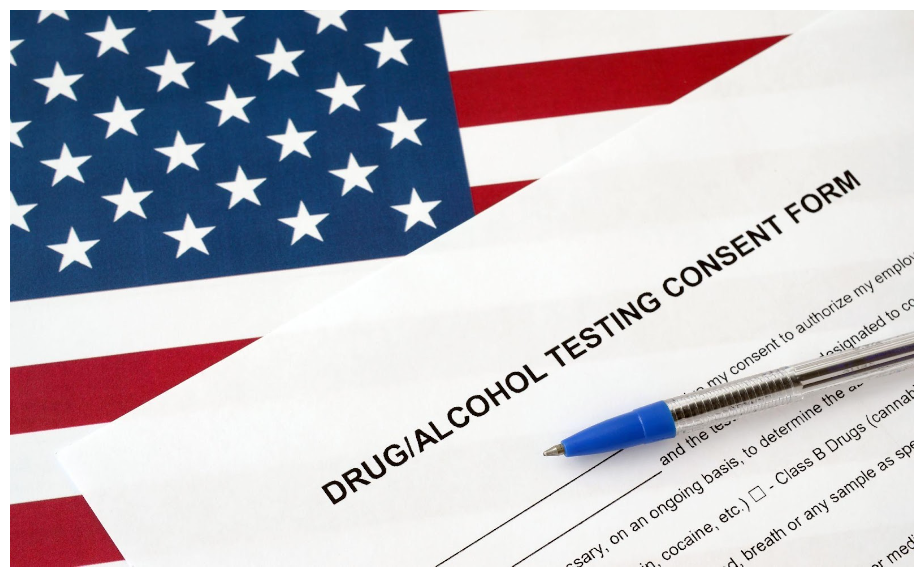Drug testing in the workplace is a hot topic. Employers have the right to keep a safe working environment. But employees also have rights when it comes to their privacy. Is it okay for employees to test themselves while at work? The answer is complex. Most employers have policies in place to outline their stance on substance tests. These policies usually require staff to be tested by the employer or a third party. So, in general, these people cannot self-test while at work.
But there can be exceptions. Some employers might let workers use kits during pre-employment or periodic screenings. The method is often a preliminary screening tool and may be followed by an official assessment. They should know their company’s policies regarding the issue. They should contact their human resources department or look at the employee handbook for clarification. Paul Marchese‘s exploration of this concept reveals intricate layers involving legal intricacies, ethical considerations, and practical implications for employers and employees.
Table of Contents
Understanding Drug Testing in the Workplace
Substance detection at work is standard and ensures staff are safe and productive. It involves looking for drugs or alcohol in people’s bodies. Firms usually introduce policies regarding this to keep rules, boost employee well-being, and stop potential risks.
Conducting narcotics tests can show employers who might be a hazard because of addiction. This stops accidents, injuries, and mistakes caused by impaired judgment or physical issues. It also prevents them from taking illegal drugs or misusing prescription medicine, making the workplace healthier and more responsible.
Firms usually have the right to investigate but must obey local laws and regulations about employee privacy. These laws show when and how the detection can be done, what substances can be looked for, and how results should be managed. Businesses should know these laws to ensure they are doing the tests correctly.
Benefits of Self-Administered Drug Testing for Employees
Privacy and Confidentiality
The method provides a sense of privacy. People can control the process, which eliminates any awkwardness that may arise from someone else conducting the test. Plus, personal information is less likely to be misused. In addition, the results remain confidential, and they only need to share them if necessary. It encourages people to take the inspection without fear of repercussions.
Convenience and Accessibility
The advantages of the method for staff are undeniable. It allows them to check at their convenience without taking time off work. Plus, these tests are easy to find online or in a pharmacy. It saves money and time: no need for visits to medical facilities and no disruptions to productivity. And they can take it in the privacy of their own homes. Flexibility is another plus. One can select when and where to take the investigation so it won’t become a burden.
Cost-Effectiveness and Time-Saving
This method can be a more cost-effective option for workers and employers by eliminating the need for third-party facilities. Also, they can save time by avoiding traveling to a facility and waiting for the outcomes.
Legal Considerations for Self-Administered Drug Testing
The legality of staff conducting their tests in the workplace depends on various factors and jurisdictions. It is essential to examine relevant laws and regulations and potential implications for both parties to understand the legal considerations.
Federal and State Laws
Federal and state regulations on the procedure are critical to guarantee adherence and evade legal problems. These laws control numerous parts of narcotics detection, including how it is done, what substances can be tested for, and the rights of employers and staff. Managers should become familiar with the applicable federal and state laws that control narcotics detection in the workplace.
Employer Policies and Consent
Employer policies and consent are essential when it comes to this detection process. Outlining expectations and consequences for those who fail tests is necessary. Support is paramount for collecting samples without violating worker’s rights. They must provide informed consent, understanding the potential consequences of a positive result.
Clear procedures, frequency, and consequence guidelines help create a standardized approach. Policies also promote transparency and prevent bias or discrimination. Well-defined policies also help managers navigate legal challenges related to privacy laws and worker’s rights. Outlining the purpose of substance detection, sample storage, confidentiality measures, and sample usage helps mitigate legal risks.
Steps for Conducting a Drug Test in the Workplace
The process of inspecting the workplace can be carried out in the following manner:
- Collection of necessary materials: Ensure that all the required materials for the test, such as kits, collection cups, and information sheets, are readily available.
- Informing employees: Notify them about the procedure and provide instructions on properly performing the test.
- Conducting the test: Employees should follow the instructions provided and correctly perform the investigation using the provided materials.
- Interpretation of results: The outcome should be interpreted according to the information sheets or manual guidelines after completion.
It is important to note that additional details may exist specific to your workplace’s policies and procedures. Maintaining a formal and informative tone throughout the process is crucial.
Advantages and Disadvantages of Self-Administered Drug Testing
It offers both advantages and disadvantages in the workplace. It enables staff to proactively check themselves for addiction without relying solely on employer-initiated tests. This approach ensures a safer and healthier work environment and promotes personal accountability.
While this approach offers increased privacy and empowerment of workers, it also comes with drawbacks. There is a risk of inaccurate or unreliable outcomes, as individuals may need to adhere to proper assessment procedures. Moreover, standardized protocols and oversight can maintain the credibility of these methods.
Accuracy and Reliability
Accuracy and reliability are essential when it comes to detecting drugs. Success depends on their ability to give accurate results constantly. Instructions must be followed for accuracy, and top-notch kits must be used. It has its benefits. It is convenient and permits people to do it in private. Plus, it provides immediate results, letting individuals act quickly.
Nonetheless, self-testing may have limitations when it comes to accuracy and reliability. Even though they have advanced, they may not be as precise as laboratory tests done by experts. For instance, wrong specimen collection or storage can influence the accuracy of the procedure.
Cost and Time Efficiency
Cost and time efficiency is a big deal regarding self-administered substance testing. Examining at home or work saves money and time—no pricey clinic visits or waiting forever for results. Ready-made kits are available so individuals and groups can quickly check for substance use without interrupting their routines. This cost-efficient approach cuts expenses and minimizes downtime associated with traditional methods. It lets people check at any time and place, so there is no need for scheduling or taking time off work. It also saves money and keeps workflows running smoothly.
This approach gives quick results, so rapid action is possible if needed. Regular testing takes longer because samples must go to the lab. But with self-testing kits, results come in minutes so that decisions can be made fast – like for pre-employment screenings or random tests.
Risk of Tampering or Manipulation
Tampering or manipulating self-administered tests can be dangerous. Individuals may try to change the samples or results, making the test outcomes inaccurate and unreliable. This puts the purpose of this inspection into question and weakens its ability to spot substance use. It can also be harmful to individuals and organizations. In industries like transportation or healthcare, faulty results can threaten public safety.
In brief, workers cannot often check on themselves in their place of work. But, there could be cases where investigating by yourself is allowed in some situations. Staff must know their rights and duties to avoid legal concerns or misunderstandings.
An interesting point is that some workplaces may have particular regulations enabling the detection approach as long as it is done privately and does not affect job duties. This could be especially important in sectors where abuse of substances may cause serious safety dangers, such as transportation or heavy machinery operations.
Still, staff should remember that even if allowed to do the procedure, the results may not be accepted as proof in disciplinary actions or legal cases. It is strongly recommended that employers comply with the correct processes and protocols specified by relevant laws and regulations when doing substance tests.












